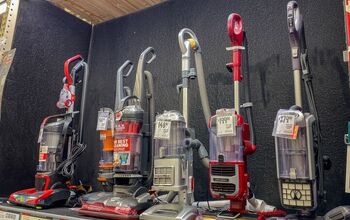Concrete Parking Lot Cost (Per Square Foot)

When people think of parking lots, the go-to material is always asphalt. But, sometimes asphalt isn’t what you want to have. Poured concrete has a beautiful look that more people are wanting than ever before. This is why people are asking for concrete parking lots in higher numbers, and why design magazines are boasting about them. Are you curious about how much this parking lot trend costs?
The average cost to install a concrete parking lot is $5.50 per square foot, and the average concrete parking lot costs $9,500. It costs $3.50 per square foot for hand-poured concrete and $2.70 per square foot for pre-poured slabs. You can expect to spend 80% of the total installation cost to regularly maintain your concrete parking lot.
If you’ve been mulling over the idea of getting a new parking lot for your home or commercial building, it’s a good idea to figure out how much this premium parking lot style will cost. Don’t panic, we’ve got you.
Do You Need Concrete, Brick, or Stone Pros?
Get free, zero-commitment quotes from pro contractors near you.

How Is Concrete Parking Lot Installation Calculated?
Great question! There are two answers to this: square footage and method used. The square footage aspect is easy to see, but the method used issue isn’t. For the sake of this article, we’re going to delve into each to make sure that everything is covered.
Square Footage
To a point, the reason why square footage mattered should be obvious. The more area your parking lot will cover, the more materials and labor will be required to make it happen. That’s why most companies will give you an estimate by the square foot. Sometimes, companies will make it easier and offer an estimate based on the cost per parking spot.
The Method Used
There are two primary ways that people make a concrete parking lot: pouring it and having pre-poured slabs placed on top of an area. This makes a huge divide when it comes to the materials portion of your parking lot price tag. The difference is as follows:
- Hand-poured concrete will cost $3 to $4 per square foot for materials alone. This makes sense, since it is considered to be the more luxurious and seamless of the two. It also takes more effort to install poured concrete, which may increase labor prices.
- Pre-poured slabs cost between $1.40 to $4 per square foot. These are mass-produced and shipped to the place of installation. Since you don’t have to hand-pour them, labor costs tend to be mildly reduced.
How Much Should A Concrete Parking Lot Cost?
It all depends on how big the lot is. Small parking lots featuring six spaces or so will cost between $5,000 to $14,000. Meanwhile larger commercial-level parking lots will cost upwards of $150,000 in most cases. You can always ask for an estimate.
What Are Maintenance Costs Associated With A Concrete Parking Lot Like?
One of the reasons why concrete is considered to be a premium material for parking lots and pavement deals with the maintenance costs. More specifically, these types of parking lots have far lower maintenance costs than asphalt parking lots. In fact, this is one of the leading reasons why concrete lots are gaining popularity over asphalt.
Over the next 20 years, asphalt’s maintenance will cost around 80 percent of the initial installation price. This is roughly double what it would cost to maintain concrete over the same course of years. This makes concrete the cheaper material when you take a look at the long-term price tag.
What Can Impact The Price Of A Concrete Parking Lot?
If you’re a regular reader of Upgraded Home, then you already know that there are a LOT of different factors that can make your project cheaper or more expensive. It’s true about everything, including concrete parking lots. These factors below are some of the biggest reasons why you might see a higher price:
- Prepwork. If you have to do extra work to level the ground before you begin, then it’s going to cost way more. In some cases, it can actually be an entirely separate project.
- Material Transport. A parking lot being made in the middle of nowhere will require more transportation of materials than the lot that’s being made right across from a concrete plant.
- State Location. Due to variations in the cost of living, the price of labor can vary greatly from state to state. For example, getting a parking lot in California will probably cost more than getting the same size concrete lot in West Virginia.
- Concrete Thickness. Not all concrete parking lots are built the same. Lots that are meant for light cars won’t need to be as thick as a parking lot that is meant to support extra-large trucks. The thicker the concrete needs to be, the pricier the tag will be. A good concrete driveway company will help you with this.
- Overlays vs. Full Build. If you already have a parking lot, then doing a concrete overlay is going to be far cheaper than doing a full build.
What Do You Need To Know About ADA Requirements?
If your parking lot is going to be used for a commercial building, chances are that you are going to have to make your lot ADA-compliant. The ADA requires parking lots to have at least one extra-large space to accommodate people who have disabilities. The slope of a lot should never be higher than 1:48, and should also be at least 96 inches wide.
Van accessibility is a must, and if you want to make sure that everything is fully compliant, the area for disabled parking should be marked as such by both a sign and paint. If you want to add a ramp, it cannot have a slope that’s steeper than 1:12. Obviously, this means that most lots that are meant to be compliant take a lot of planning and expertise.
Commercial lot owners who want to have ADA-compliant parking lots are best off hiring companies that have professional parking lot installation experience. This is the best way to ensure that you get fully compliant.
How Long Do Concrete Parking Lots Last?
Concrete parking lots are worth the high price tag for more reason than just low maintenance costs. The truth is that concrete remains one of the most durable parking lot materials on the market. Concrete lasts far longer than a typical parking lot made from asphalt, or even gravel in some cases.
If you get a concrete parking lot, then you can expect it to last between 30 to 40 years on average. If you live in an area where potholes seldom happen, it’s even possible to see your concrete lost last for a whopping 50 years. In other words, if you want to make the most of your dollars and want to ensure that you only have to install a parking lot once, concrete is the way to go.
Which Is More Likely To Crack, Asphalt Or Concrete?
One thing that people need to be aware of when choosing their pavement material is the issue of cracking. Believe it or not, concrete is more prone to cracking than asphalt. This is true, despite the fact that most asphalt pavement is made to last for only 15 to 20 years. Asphalt is more flexible than concrete, which makes it less likely to crack.
With that said, don’t let concrete’s cracking propensity scare you off. The truth is that having thicker concrete can prevent it. Even if your pavement *does* crack, you don’t have to panic. Repairing concrete is pretty easy. It literally only takes filling in some cracks.
Do You Need Concrete, Brick, or Stone Pros?
Get free, zero-commitment quotes from pro contractors near you.

Related Questions
How long should you wait before you resurface a parking lot?
Resurfacing a parking lot is a primarily asphalt-based thing to do. If you have an asphalt parking lot, you have to wait at least six months before you can seal it in. This lets the asphalt fully settle into its grooves. Once the asphalt is sealed, you should try to resurface it every two to four years.If you live in an area that is prone to heavy snow or rain, you may need to resurface your asphalt even more frequently.
How much paving material do you need to have?
Residential parking lots do not have to be too thick. Most of the time, 2.5 to 3 inches is more than enough to provide the strength that you need for typical cars. However, if you have a commercial parking lot, you have to prepare for heavier vehicles like large scale trucks. This means that you may need to have a pavement thickness of at least 4 inches of concrete or asphalt to cushion the larger vehicles.
What is the cheapest material that you can use for a driveway?
If you want to create a driveway on a shoestring budget, the best option that you can have is gravel. Small gravel driveways are less expensive than asphalt or concrete by far. The only issue that you may have is the fact that the material may be damaging for tires, especially if the gravel you use is actually closer in size to rocks.We do not suggest using gravel driveways if you have antique cars, or motorcycles. It can get pretty messy, quicker than you think.

Ossiana Tepfenhart is an expert writer, focusing on interior design and general home tips. Writing is her life, and it's what she does best. Her interests include art and real estate investments.
More by Ossiana Tepfenhart



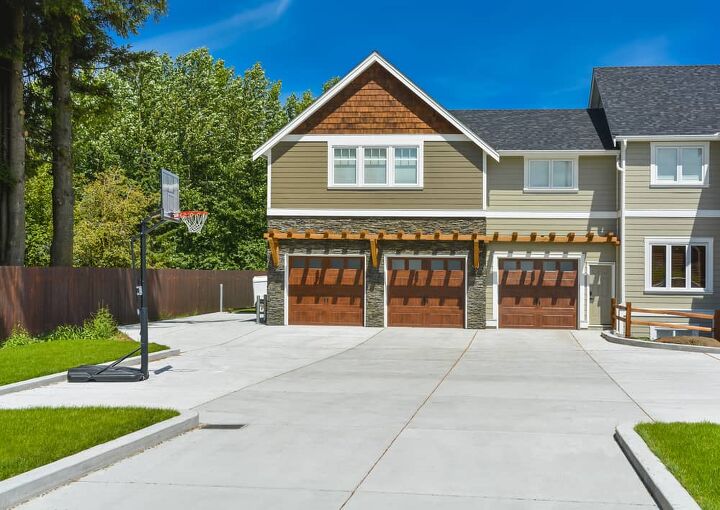






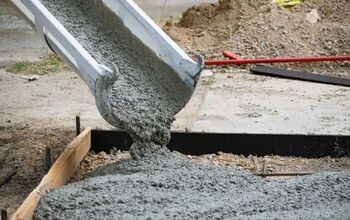
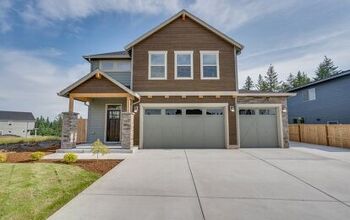
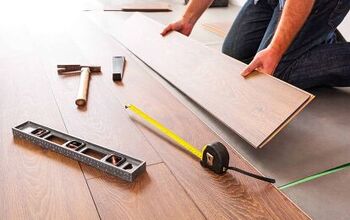
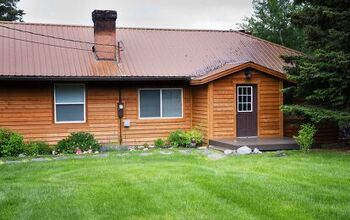
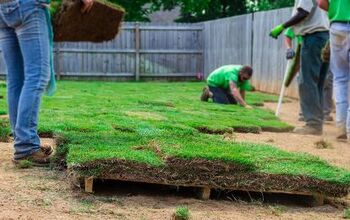

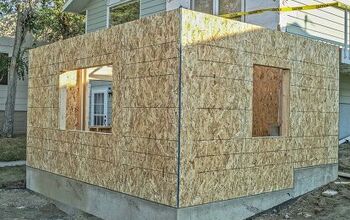


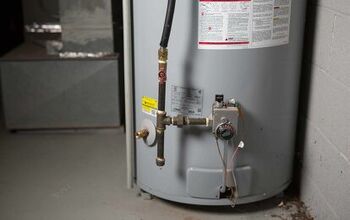
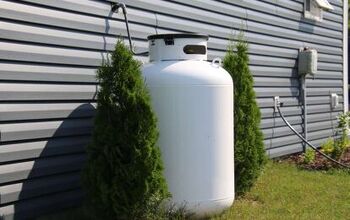


![12 Washing Machine Brands to Avoid [with Recall Data]](https://cdn-fastly.upgradedhome.com/media/2023/07/31/9075781/12-washing-machine-brands-to-avoid-with-recall-data.jpg?size=350x220)


